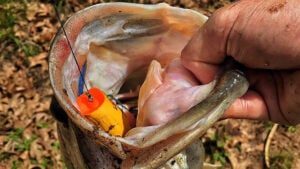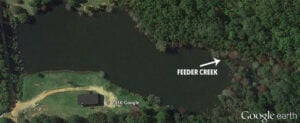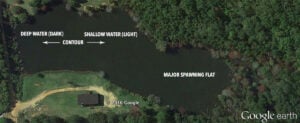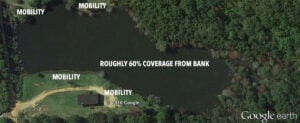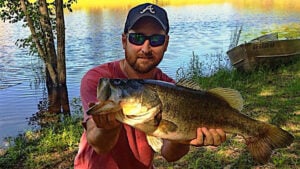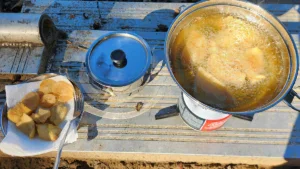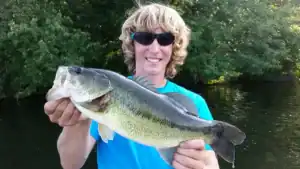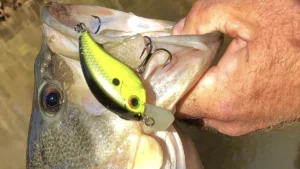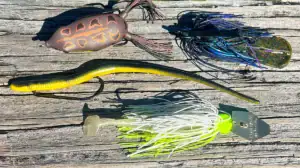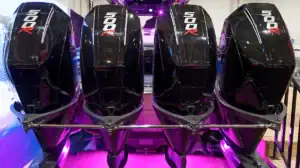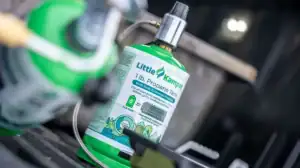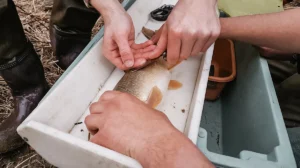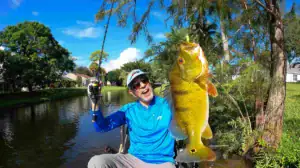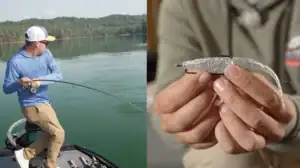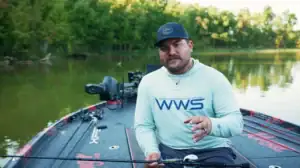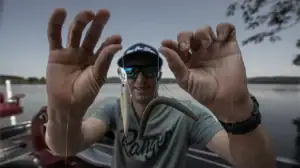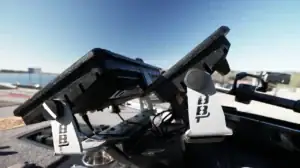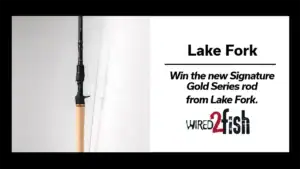I’ve owned a bass boat since my teenage years. I fish tournaments, guide fishing trips and spend countless hours on larger bodies of water. But each and every year, my biggest and most memorable catches always occur when I’m bank fishing. You don’t, under any circumstances, need to have a fancy bass boat in order to catch quality bass.
Let’s go ahead and get that misconception cleared up.
There’s much more to bank fishing, however, than going to a lake, hiking to the shore and casting as far as you can into the middle. You might catch a few with that strategy, but don’t make a habit of it; a clear understanding of a few key concepts will help you locate and dissect fisheries from the bank in a much more efficient manner.
You get what you put in
It’s not just some petty cliché; it’s absolute truth when it comes to bank fishing. Your success is and always will be directly correlated to the amount of effort you put forth. Luck might play a very small role in things, but the anglers who bust their humps to find uncharted territory will enjoy consistent success.
As a general rule, the easier it is to access or gain permission to a bank fishing spot, the tougher the fishing will be. Public fishing docks, community parks, marinas (where permitted by law) and similar places are excellent places to learn the ropes of fishing but if you’re searching solely for big bass, thinking outside of the proverbial box and avoiding crowds will pay big dividends.
Bass can become conditioned rather quickly to excess fishing pressure. If they’re being bombarded by bobbers, night crawlers, crickets and crankbaits on a daily basis, they’re not going to hang around long. They crave security and the disturbance of constant human presence will cause them to vacate the area. That’s why most of the time—not all the time—you’ll rarely see mature bass caught from very public areas. It’s all about the fishing pressure.
To reiterate, there’s absolutely nothing wrong with fishing from public access areas. If you’re aiming to spend the day relaxing and maybe catch a few fish in the process, they’re great areas and I applaud the states, counties and cities that make these areas accessible to anglers. But for giant bass, there are better options.
Utilizing satellite imagery
Google Earth can be your best friend when you’re searching for productive and little-known bank fishing spots—go ahead and click on the link and bookmark it. It’s very possible that after a few hours of scanning its satellite imagery, you’ll find several bodies of water that may never be fished throughout the year.
When I’m searching for bank fishing spots on Google Earth, the first thing I’m looking for is a pond that’s located a healthy distance away from main roads. I don’t want to share my honey hole with anyone who might drive by and see a sexy-looking pond. I want virgin water and zero fishing pressure and again, the harder a place is to find, the better my chances are of finding that special spot. Remember: Nothing worth having comes easy.
Narrowing your search
After locating various bodies of water within driving distance of my location, I narrow my search quite a bit; I’ll start picking the lakes and ponds apart and looking for a few essential factors that are conducive to big bass.
Feeder creeks are a big plus as you begin to investigate potential spots. These creeks don’t have to be big—they’re often just 5 or 6 feet wide—but they offer two important things for bass: Crawfish and contour.
Crawfish are a favorite forage of bass and they’re very protein-rich which, in many cases, results in larger-than-average bass. But more importantly, it’s easy to mimic crawfish with artificial soft plastics while fishing from the bank. Treble-hook lures that mimic baitfish are often difficult to fish in many ponds due to soft, muck-covered bottoms. If a pond has a healthy population of crawfish due to its feeder creek, I’m confident that I can catch big fish with a lightweight Texas-rigged soft plastic.
Feeder creeks are also indicative of countour change. The constant influx of water will create a ditch in which huge bass can stack up in sunny conditions and become easy pickings for bank anglers. These ditches may only be a foot deeper than the surrounding area, but it doesn’t take much contour to attract small-water bass.
As I further study the satellite imagery, I’m also keeping a close eye out for deep water. A lot of the ponds you’ll find will be very shallow and flat. While these shallow ponds can be loads of fun and offer a lot of fish-catching action, they’re not necessarily known for producing trophy fish. The deeper the pond, the more likely you are to find big bass.
Locate deep water on Google Earth by looking for color changes in the water: The lighter-colored water will be shallow and the darker-colored water will be deep. Sharper contours and more depth change give the bass a chance to hide, ambush and rest when shade is not prevalent on a body of water. The area surrounding many ponds is cleared by landowners, so shade is not always easy to find; but if the bass can hang out off of a break line in deeper water until they’re ready to feed, they’ll stay closer to the shallows and in turn, be more accessible to bank anglers.
Finally, I also make a point to find ponds and lakes that lend themselves to mobility. The ability to stay mobile and move along the bank is imperative. You can be using the best bait in the world with the best line, rod and reel and you won’t catch a darn thing if you’re not around fish. These smaller bodies of water offer anglers a unique opportunity to fish for a captive audience—there are only so many places the bass can hide. But if you’re stuck fishing the same 30-foot by 30-foot area, you’re at a significant disadvantage. The chances of a big bass being in that small section of a pond or lake are shockingly small.
Tax assessors information
Once you’ve found a few promising lakes or ponds for bank fishing, the fun begins. It’s time now to track down the rightful owners of the property and ask permission to fish. This is the most important part of the process because we all need to do things in a lawful manner. A few unlawful anglers can make our entire sport look bad, so do not, under any circumstances, attempt to fish a private pond or lake without written permission from the owner. Bad things can and will happen.
If you live in a small town, you’ll likely be able to find the owner by simply asking around. But similar to most things in life, it’s not always that easy.
In the event that you do not know who owns the lake or pond, a quick visit to the county’s Tax Assessors Office can do wonders. You’ll be able to see exactly who owns the property which will give you better odds of tracking them down. My particular county has an Tax Assessors website that allows me to look at aerial photos and property lines of nearby landowners. A quick Google search for your area will quickly get you on the right track.
Asking permission
This is perhaps the most difficult part of finding a new bank fishing spot. It’s nerve racking and to be honest, really awkward at times. I’ve gained permission at countless private ponds throughout my life and I’ve found a few tactics that seem to work well.
I prefer to talk to the owners face-to-face, so I’ll often drive by the property several times in hopes of catching the owner while they’re outside. I’ll clean up my beard, tuck in my shirt and take my sunglasses off. It’s all about a clean-cut appearance, direct eye contact and a firm hand shake because, as you know, first impressions are everything. Don’t be shady about things and don’t get to stuttering and mumbling your words—be confident, respectful and remember to smile. It’s just fishing; you’re not asking them on a date.
Explain to the property owner your love of fishing and your catch and release conservation philosophy. Make it absolutely clear that you will not take a single, solitary fish out of their pond. Also be sure to tell them that you will not take any guests and you would be glad to have a few work days on the banks of the pond in order to keep it in tip-top shape. If things are going well up to this point, I’d even offer to call them personally before and after each fishing trip so they know exactly who is on their property at all times.
If you’re willing to harvest a few bluegill, crappie or catfish from their pond—with permission—it’s a great idea to offer them some fresh fish to cook on a periodic basis. Don’t just leave them with a ice chest full of fish on their front door; clean ‘em and have them ready for the fryer. If the landowner can get something positive from the deal, they’re much more likely to grant you permission.
In the event that you can’t catch the landowner outside, I don’t suggest knocking on their doors. I wish I could because again, I prefer a man-to-man conversation, but we don’t live in Mayberry anymore and people can be pretty funny about having strangers on their doorstep. You never know how someone can react, so it’s better to err on the side of caution.
Instead, write a hand-written—not typed—note on company letterhead if possible. Keep it short and sweet, leave them a business card with your phone number and offer to meet them face-to-face before a final decision is made. When you show up to meet them, bring them a token of appreciation for their time—even if you’re not sure they’ll give you permission. Here in the South, boiled peanuts and deer jerky work extraordinarily well.
It never hurts to ask. If they say no, who cares? You didn’t lose anything. I’ve been told no dozens and dozens of times but the few landowners who gave me permission have changed my fishing success. I have permission to some of the best ponds and small lakes in Georgia and I had to suck it up and ask politely in order to have the opportunity. Anyone could have done the work to find these ponds, but they didn’t, and I have most of them all to myself.
Do your homework, know what you’re looking for and ask permission; that’s all you can do. When the stars line up and you find that small, unknown piece of bass fishing paradise, it’ll make all the hard work totally worth it. More bank fishing tips here.

